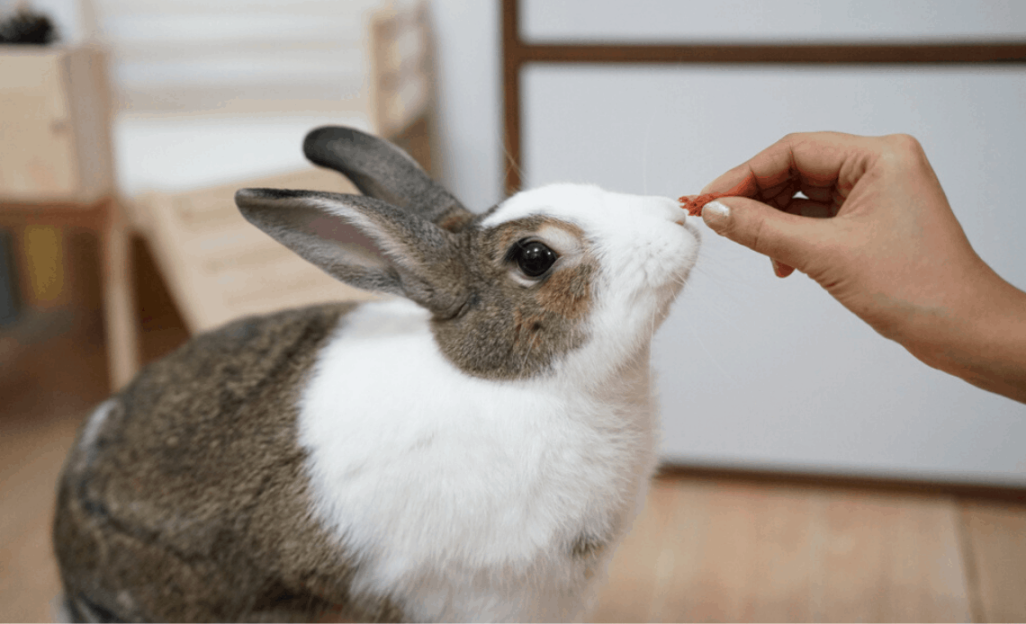Do Rabbits Eat Peanuts?
Rabbits are known for their love of fresh vegetables and hay, but what about peanuts? Can rabbits safely consume peanuts as part of their diet? In this article, we will explore whether peanuts are suitable food for rabbits and provide important information for rabbit owners.

Can Rabbits Eat Peanuts?
The short answer is no, rabbits should not eat peanuts. While peanuts are a popular snack for humans, they can be harmful to rabbits. Peanuts are high in fat and protein, which are not ideal for a rabbit’s digestive system. Consuming peanuts can lead to various health issues for rabbits, including obesity, gastrointestinal problems, and even liver damage.
Why Are Peanuts Harmful to Rabbits?
There are several reasons why peanuts should not be included in a rabbit’s diet:
- Fat Content: Peanuts are high in fat, which can lead to obesity in rabbits. Rabbits have a sensitive digestive system that is designed to process high-fiber foods like hay and fresh vegetables. Feeding them foods high in fat can disrupt their digestive balance and cause weight gain.
- Protein Levels: Peanuts are also rich in protein, which is not necessary for rabbits. A high intake of protein can strain a rabbit’s liver and kidneys, potentially leading to serious health issues.
- Potential Allergies: Some rabbits may be allergic to peanuts, just like humans. Allergic reactions can range from mild symptoms like itching and sneezing to more severe reactions that require immediate veterinary attention.
- Risk of Choking: Peanuts and other nuts are small and can present a choking hazard for rabbits. The shape and size of peanuts can make them difficult for rabbits to chew and swallow safely.
Can Rabbits Have Peanut Butter?
While whole peanuts should be avoided, what about peanut butter? Unfortunately, peanut butter is not suitable for rabbits either. Peanut butter contains oil, sugar, and other additives that can be harmful to rabbits. Additionally, the sticky consistency of peanut butter can cause blockages in a rabbit’s digestive system.
What Foods Are Safe for Rabbits?
Rabbits have specific dietary needs, and their diet should consist of mostly hay and fresh vegetables. Some safe foods for rabbits include:
- Hay: High-quality hay should make up the majority of a rabbit’s diet. It provides essential fiber, aids digestion, and keeps teeth healthy.
- Fresh Vegetables: Leafy greens like kale, spinach, and romaine lettuce are excellent choices for rabbits. Carrots, bell peppers, and broccoli can also be offered in moderation.
- Water: Fresh, clean water should always be available for rabbits to drink.
Rabbits are herbivores and require a diet that is low in fat, moderate in protein, and high in fiber. Providing a balanced diet is crucial for their overall health and well-being.
Frequently Asked Questions (FAQs)
1. Can rabbits eat peanuts in small quantities?
No, even in small quantities, peanuts should not be given to rabbits. The high fat and protein content can cause digestive issues and other health problems.
2. Are there any nuts that rabbits can eat?
While peanuts are not suitable, some nuts like almonds and walnuts can be given to rabbits in very small quantities as an occasional treat. However, it’s important to remember that nuts should not be a regular part of a rabbit’s diet.
3. How do I introduce new foods to my rabbit’s diet?
When introducing new foods to your rabbit, it’s important to do so gradually. Start by offering a small amount and observe how your rabbit reacts. If there are no adverse effects, you can slowly increase the portion size. However, if your rabbit shows any signs of discomfort, stop feeding that particular food immediately and consult a veterinarian.
4. Can rabbits eat peanut shells?
No, peanut shells are not safe for rabbits to consume. They can cause digestive blockages and pose a choking hazard.
In conclusion, peanuts should not be fed to rabbits due to their high fat and protein content, potential allergies, and risk of choking. It is essential to provide rabbits with a diet primarily consisting of hay and fresh vegetables to ensure their overall health and well-being.
Related Articles…
Copyright Notice:
Images displayed on this website are not our property, but are procured from the internet. If you hold copyrights to any image and wish for its removal, please get in touch with us.